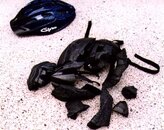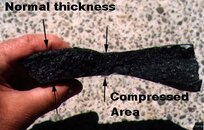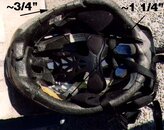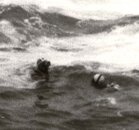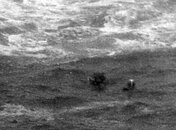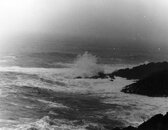AfterDark
Contributor
I learn a lot reading threads here. Apart from mask clearing and ear equalization, my dive training in the 1980's focused on not going too deep, on coming up slow (follow the little bubbles to the surface), and on breathing all the time. Being overweighted was easier than being what I'd now call being properly weighted, because it made it easier to use the BC as an elevator. Now it's clear that I not only don't know a lot, but that there's probably a great deal that I don't even know that I don't know it.
Over on Reddit SCUBA, everyone seems fine talking about the pretty fish they saw. Which is kind of what my speed is too.
Here, there are a lot of things to learn from the underwater astronauts. I wasn't aware that it is possible to go down in a wet suit and not be able to come up, even using a BC. Nor was I aware of downcurrents along reefs that apparently function as freefalls to hell. Or of dynamic airway compression. Or of immersion pulmonary edema. Or of a lot of other things. And I'm not even talking about the perfectionism of the DIR cult, just dive physiology and whatnot in general. All the research in recent years is good, but it sure illustrates a gap between us recreational folk, and the people who are way into this! Still, the education is worth the scare, I reckon. So thank you to the people on ScubaBoard who teach the rest of us how to be safer!
Diving ain't bicycling riding or hiking. It's technical and takes a certain level skill to be done safely.
Diving beyond that skill level can have terrifying consequences.




